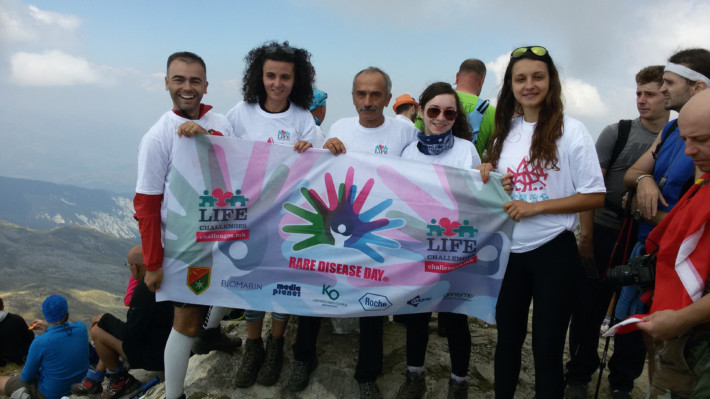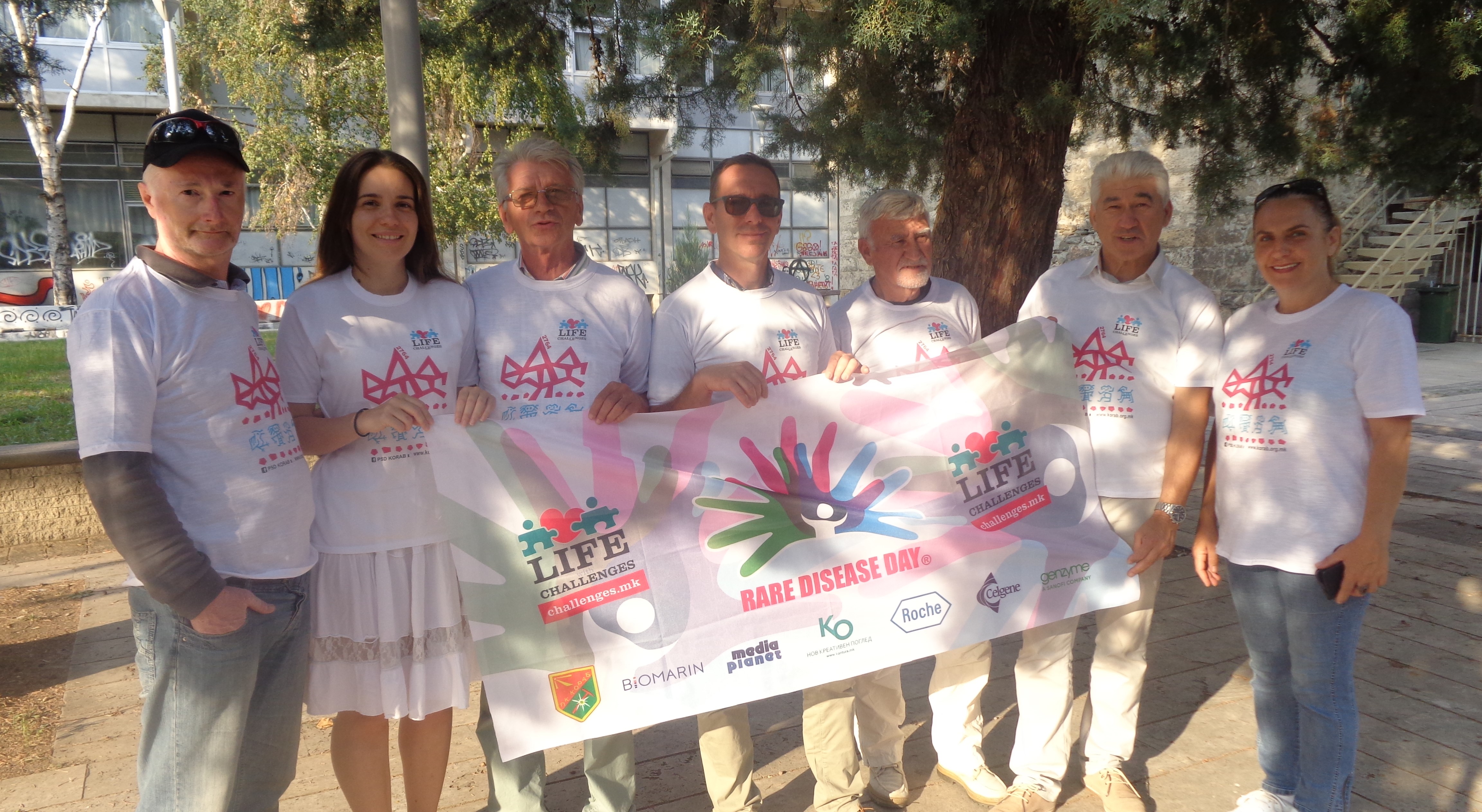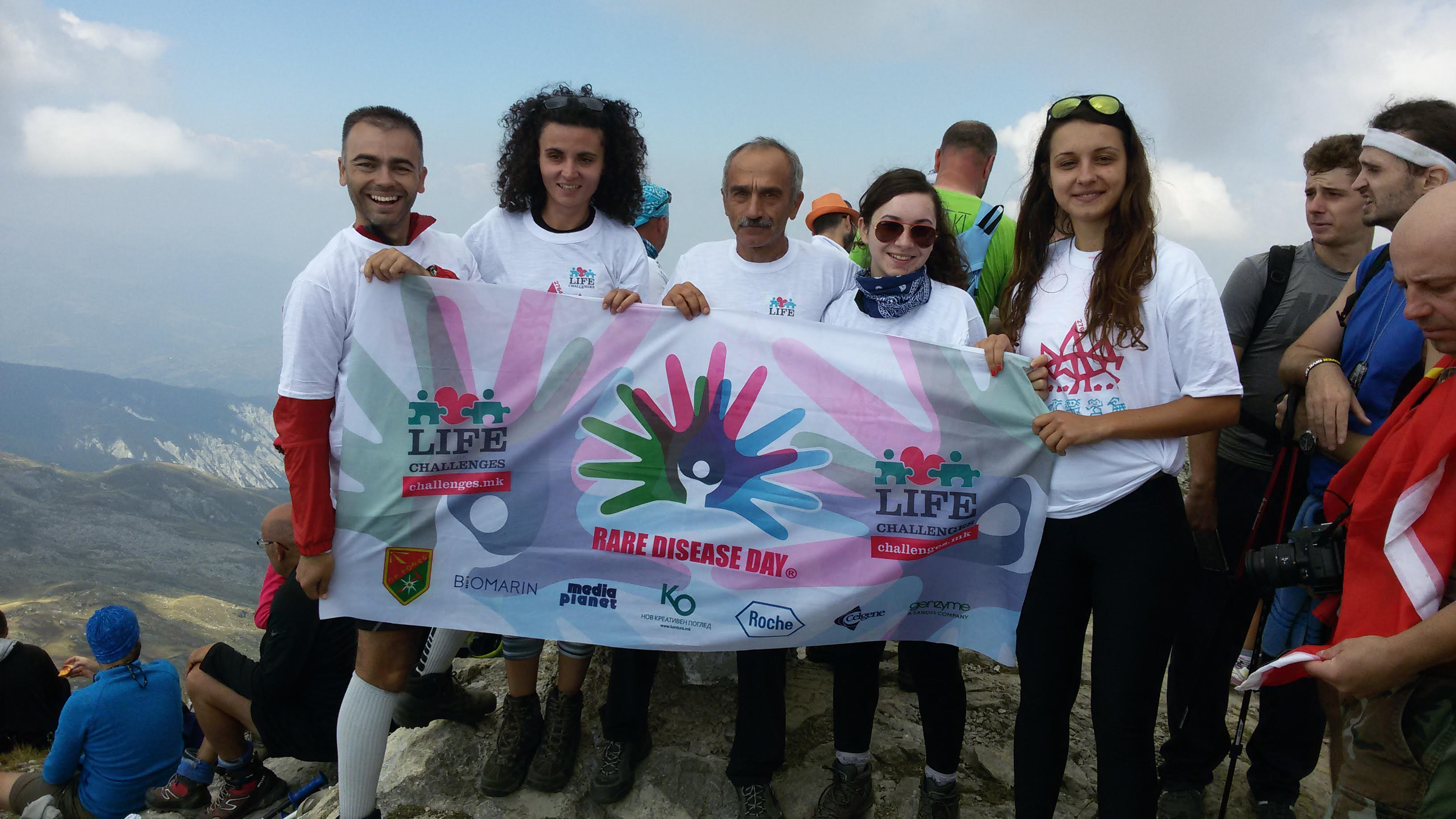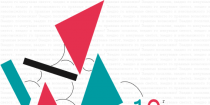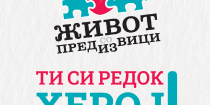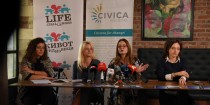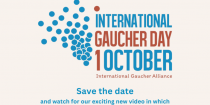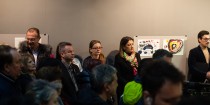The Citizens’ Association for Rare Diseases Life with Challenges continues the tradition to participate in climbing Macedonia’s highest mountain top Golem Korab in 2016.
On the occasion of 8th of September the traditional climbing of Golem Korab takes place on the 4th of September, Sunday. ZPK Korab pitched the flag of the Citizens’ Association for Rare Diseases Life with Challenges on the mountain top.
Statement by Vesna Aleksovska, Chairperson of the Association
We are grateful that the rare disease programme with the Ministry of Health works with a greater budget and encompasses a larger number of diseases, that is to say, more medicines are procured for rare diseases and they literally save families. I sincerely thank the team within the Ministry of Health, especially Rashela Mizrahi who heads the programme with great dedication and understanding of our challenges. A lot of people are responsible for the advancement in the field of rare diseased in Macedonia, firstly the patients and parents who courageously demand their rights from the media and the institutons. They have received selfless support from the doctors headed by Aspazija Sofijanova, MD, as the chairperson of the Committee for Rare Diseases.
We still face various challenges that we hope will be resolved in cooperation with the institutions. Firstly, it is very important that the tender procedures are realized swiftly and efficiently and patients should not be left to wait 3 to 6 months without treatment as was the case this year. We have understanding for administrative procedures and in return we demand understanding for the needs of patients. No one should be left waiting for something that means life for that person.
Furthermore there is the need to clearly establish how new patients will be registered as well as how new medicines will be introduced in the list in the programme in order to avoid confusion and wandering from one institution to another and again long waiting periods for the patients. These diseases are lifelong, chronical and there is the necessity of an urgent intervention so as to avoid long-term consequences to health and quality of life. Accordingly, if a condition requires combined treatment it should be timely procured and should the patient become resistant to the first-line therapy to provide second or third-line therapy if such therapy exists.
We appeal that it is of utmost importance to provide treatment for patients with rare cancers who do not receive any treatment whatsoever at the moment neither through the MHIF, nor through the cancer programme, nor through the rare disease programme. These cancers are very few and the number of patients is very low and it is necessary to act swiftly to resolve the issue with these patients. Their families suffer quietly looking for hope through donations and alternative treatments.
In case where there is no treatment available and there is a need of orthopedic devices they should also be provided through the MHIF and the reimbursement should be alleviated with a statement which would be issued twice a year and not each month. Some disabled patients have the need of a personal assistant and assistance after the age of 26 and we appeal for this to the Ministry of Labour and Social Policy. All institutions should work together to resolve all the issues and challenges which the families with rare diseases are faced with.
Where necessary patients should be provided with the opportunity to receive treatment at home or in a hospital in the cities where they live in order to lower the costs of both patients and clinics as well as the time necessary to access treatment.
Finally I have to point out the importance of carrying out the procurement through suitable distributive channels so that to avoid problems with the quality of medicines, that is to say, to have additional requirements when there is a case of parallel import of medicines where a certificate of quality and origin shall be requested. This should be so in order to avoid additional patient suffering as was the case with the patients with Gaucher who were left without treatment for 6 months and for which there is still no reply from the Agency of Medicines which withdrew the medicines in order to investigate their quality after a strong allergic reaction with a child suffering from Gaucher.
This activity is carried out in order to raise the public awareness regarding the rare diseases in Macedonia and the challenges the people with rare diseases and their families face daily. For this activity we are grateful to ZPK Korab and its chairperson Ljubomir Kotevski who accepted the idea wholeheartedly from the very beginning.
We are grateful to all those who have supported us so far and we continue the cooperation. We hope to make our contribution as an association to the future for the people with rare disease and to create a future that they desire.



